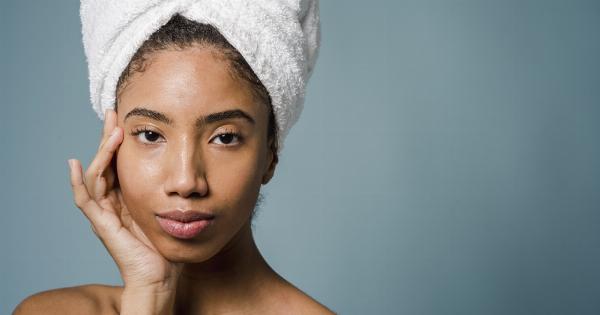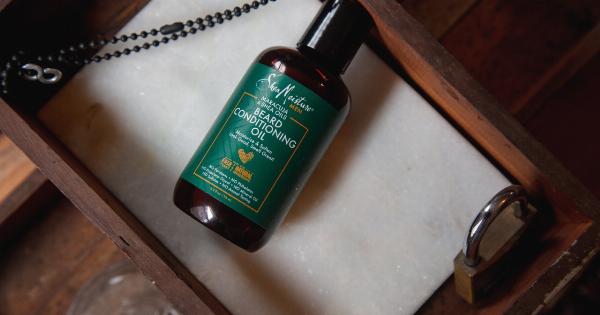Long hair is a coveted attribute for many people, representing beauty, femininity, and cultural significance. However, maintaining and caring for long hair can sometimes be challenging and time-consuming.
This comprehensive guide will provide you with everything you need to know about long hair, from proper care and styling techniques to common problems and solutions. Whether you are already blessed with long locks or considering growing your hair out, this article will serve as your ultimate long hair 101 resource.
The Benefits of Long Hair
Long hair offers a plethora of benefits that make it appealing to individuals across different cultures and backgrounds. Some advantages of having long hair include:.
- Enhanced versatility for styling
- Opportunities for creative and intricate hairstyles
- Protection for the scalp against sunburn and harsh weather conditions
- Increased chance of experiencing hair growth
Healthy Hair Care Tips
Maintaining the health of your long hair is crucial for achieving luscious locks. Follow these essential tips to keep your hair healthy:.
1. Regular Washing
Washing long hair regularly is important to remove excess oil, dirt, and product buildup. Use a gentle shampoo and conditioner designed for your hair type, and avoid using hot water as it can dry out your hair.
2. Proper Conditioning
Conditioning is essential to keep long hair soft, hydrated, and manageable. Apply a good-quality conditioner to the mid-lengths and ends of your hair, focusing on these areas to prevent weighing down the roots.
3. Deep Conditioning Treatments
Occasionally treating your hair to deep conditioning can help nourish and restore its vitality. Look for deep conditioning masks or DIY treatments made with natural ingredients such as coconut oil, avocado, or honey.
4. Regular Trimming
To prevent split ends and maintain healthy hair, regular trims are necessary. Aim for a trim every 8-12 weeks, as this will also promote hair growth by removing any damaged or dead ends.
5. Protecting Your Hair
Avoid excessive exposure to the sun, as UV rays can damage and weaken your hair. When spending time outdoors, protect your hair by wearing a hat or using a leave-in conditioner with SPF.
6. Minimize Heat Styling
Excessive use of heat styling tools can lead to dryness, breakage, and frizz. Whenever possible, minimize heat styling and opt for natural hairstyles or heatless alternatives. When using heat, always apply a heat protectant spray before styling.
7. Avoid Tight Hairstyles
While updos and ponytails are convenient, frequent use of tight hairstyles can cause tension and breakage. Opt for looser hairstyles or use hair-friendly accessories like scrunchies to avoid unnecessary damage.
8. Choose the Right Hairbrush
Invest in a good-quality brush with wide-set, soft bristles or a wide-toothed comb to prevent tugging and breakage. Start detangling your hair from the ends and work your way up to avoid unnecessary stress.
9. Healthy Lifestyle Habits
A balanced diet, regular exercise, and adequate hydration play a vital role in promoting healthy hair. Nourish your body with nutrient-rich foods and drink plenty of water to support strong and vibrant hair growth.
10. Protecting Hair During Sleep
Protect your long hair while sleeping by loosely tying it in a low ponytail or braid to prevent tangling and friction. Alternatively, use a silk or satin pillowcase that reduces friction and helps in maintaining the integrity of your hair.
Common Long Hair Problems and Solutions
While long hair is undeniably stunning, it is not without its challenges. Here are some common problems experienced by individuals with long hair and tips on how to overcome them:.
1. Tangling and Knots
Solution: Use a wide-toothed comb or brush specifically designed for detangling. Start from the ends and work your way up slowly, applying a detangling spray if necessary. Regular conditioning and avoiding tight hairstyles can also help prevent tangling.
2. Hair Breakage
Solution: Avoid excessive heat styling and chemical treatments. Incorporate regular deep conditioning treatments and use a wide-toothed comb or brush to prevent unnecessary breakage.
Additionally, protect your hair from harsh weather conditions with scarves or hats.
3. Split Ends
Solution: Regular trims every 8-12 weeks are essential to remove split ends and maintain healthy hair. Additionally, avoiding excessive heat styling and chemical treatments can help prevent further damage.
4. Flat and Limp Hair
Solution: Incorporate volumizing products such as mousses or root-lifting sprays into your hair care routine. Consider adding layers to your haircut to create more dimension and add volume.
Using dry shampoo at the roots can also help create an illusion of fuller hair.
5. Dry and Dull Hair
Solution: Deep condition your hair regularly and avoid over-washing, as it can strip away natural oils. Use moisturizing hair masks and oils to add hydration and shine. Limit the use of heat styling tools and protect your hair from sun damage.
6. Hair Growth Stagnation
Solution: Ensure you have a balanced diet rich in essential nutrients for hair growth, such as proteins, vitamins, and minerals.
Avoid tight hairstyles that cause tension on the scalp, and consider incorporating scalp massages to stimulate blood flow to the hair follicles.
7. Style Boredom
Solution: Experiment with various hairstyles and techniques to keep your long hair looking fresh and exciting. Braids, updos, half-up hairstyles, and hair accessories can completely transform your look without requiring a haircut.
Hairstyling Tips for Long Hair
Long hair opens up a world of possibilities for styling. Here are some popular hairstyles and techniques to try:.
1. Sleek and Straight
Straightening your long hair can create a sleek and polished look. Use a flat iron and a heat protectant spray to achieve smooth, straight strands. Finish with a shine-enhancing serum for added glamour.
2. Beachy Waves
Create effortless beachy waves by using a curling wand or simply braiding your damp hair before sleeping. Undo the braids in the morning to reveal soft and textured waves. Enhance the beachy look with a sea salt spray.
3. Half-Up Hairstyles
Half-up hairstyles are perfect for adding variety to your everyday look. Pull the top half of your hair back and secure it with a clip or hair tie, leaving the remaining hair flowing freely.
4. Updos
From elegant chignons to messy buns, updos are versatile and suitable for both casual and formal occasions. Experiment with different updo styles to find the one that complements your face shape and personal style.
5. Braids
Explore the world of braids with various techniques such as French braids, fishtail braids, or Dutch braids. Braids can be incorporated into updos, half-up hairstyles, or worn as a standalone style.
6. Ponytails
Ponytails are a classic go-to hairstyle for long hair. Experiment with high, low, side-swept, or bubble ponytails to add interest and uniqueness to your look.
7. Accessories
Enhance your hairstyles with various hair accessories such as headbands, hair clips, ribbons, or hair jewelry. These can instantly elevate your look and add a touch of elegance or playfulness.
Conclusion
By following the proper care and styling techniques outlined in this long hair 101 guide, you can enjoy healthy, beautiful, and versatile long locks.
Remember to prioritize regular trimming, deep conditioning, and adopting healthy lifestyle habits to maintain the integrity and vibrancy of your long hair. With the tips and solutions provided, you can overcome common long hair problems and confidently rock different hairstyles that showcase the beauty of your long tresses.





























